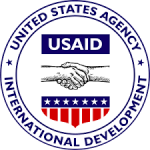
Thai police have issued another 30 arrest warrants for suspects in a human trafficking ring that smuggled Rohingya migrants, bringing the total number of suspects to 119, as they sent case files to prosecutors to begin hauling those already in custody before the courts.
The additional warrants are an indication that Thai police are continuing to investigate and pursue human traffickers, despite concerns by human rights activists that the forwarding of case files to prosecutors means the authorities may consider the problem solved and ease up on their campaign to end trafficking in the Kingdom.
The United States Department of State is preparing to issue its annual Trafficking in Persons report any day now. Thai officials in government and law enforcement have repeatedly stressed that they will continue to wage war on human traffickers no matter what ranking the Kingdom receives in the report. They insist they are in this battle for the long term because it is the right thing to do by any standard.
Last week, Thailand handed over several alleged traffickers also wanted in Malaysia to authorities in that country. Trafficked Rohingya, who originate from either Bangladesh or Myanmar, are often trying to reach Malaysia or Indonesia, and Thailand is a transit country on their desperate journey.
The Thai government is also preparing to set up a special court to deal solely with human trafficking cases. Judges have agreed that trafficking cases should be tried and finished within six months from the opening date of trial, although some special cases could be extended, but not past one year.
All the warrants issued by police stem from an investigation that began in January this year when several trucks transporting about 100 trafficked Rohingya migrants in Phang-nga province just north of the resort island of Phuket were stopped at a checkpoint by police.
At the time, police arrested the drivers, but no one else. Anti-trafficking groups criticized the police and the government at that time, excoriating them for only arresting low-level members of the trafficking gang while doing nothing to catch the ‘big fish’ they said are running the trafficking syndicates.
But police pursued the investigation quietly behind the scenes, and their work led to the discovery in May of virtual prison camps where traffickers held and sometimes killed Rohingya victims in the jungles not far from the border with Malaysia.
Police subsequently arrested scores of suspects including local politicians, police officers and a three-star army general. Even more prison camps and graves were found across the border in Malaysia by authorities there.
Last week, police said traffickers were still trying to intimidate some witnesses, but police vowed to protect anyone providing them with information.
For more information and updates about Thailand’s policies and actions against trafficking in persons and related issues, visit www.thaianti-humantraffickingaction.org




